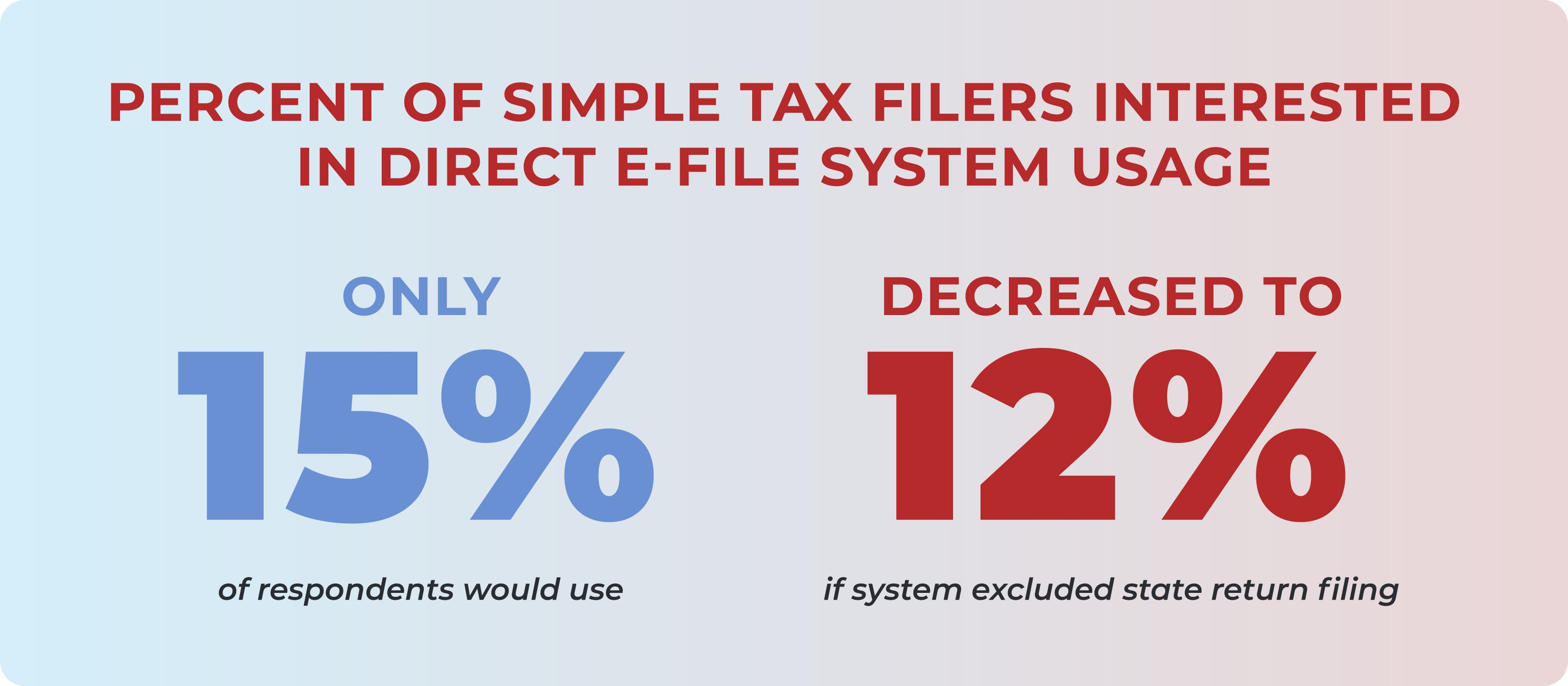Insights

Direct e-file won’t make filing taxes any easier — but it could make things worse
Published on August 16, 2023
THE HILL
As the Internal Revenue Service contends with a cut of over $21 billion in the debt-ceiling deal, it should focus on cost-efficient ways to maintain and improve our vital taxation system. It should not spend billions to replace vital processes already in existence with a direct e-file system that would compromise a significant portion of taxpayer personal privacy.
Asking the IRS to be both filer and reviewer will not reduce the burden on the taxpayer.
The U.S. tax code for individuals may be the most complicated system in the world. Many have long advocated for simplification and reform, to reduce the burden on taxpayers, to unleash the potential of American business and to provide more badly needed revenue and resources for both the IRS and the government it serves.
The IRS recently announced it would pilot an option for taxpayers to e-file directly with the government in the 2024 tax season. But here’s the rub: asking the IRS to be both filer and reviewer will not reduce the burden on the taxpayer.
The taxpayer will still have to complete the same return, but by having the IRS involved in this new way removes a critical layer of checks and balances for the taxpayer during their moment of most direct and intimidating contact with the federal government.
This change will not increase refunds for taxpayers one cent. It will not help taxpayers pay for college, care for loved ones, buy a home or support worthy charities. In fact, there is a higher likelihood individuals will miss out on these deductions they have historically benefited from.
The new system being contemplated for next year’s pilot program is very likely not going to support taxpayers seeking their Earned Income Tax Credit, nor will it assist with the filing of state income tax returns. This means taxpayers — particularly low- and middle-class taxpayers — may unwittingly miss out on important benefits that Free File and other free private tax-filing services now ensure they receive at no cost.
A recent MITRE study found that only 15 percent of simple tax filers said they would use a direct e-file system — and that number dropped to 12 percent if the question stipulated that state returns would have to be handled separately.

MITRE Taxpayer Filing Preference Survey
The study may even be overstating the theoretical draw of an IRS direct e-file option, as the study failed to include the existing Free File program, which already gives filers under $73,000 adjusted gross income an option to obtain tax preparation services for free — an option 70 million taxpayers qualify for.
The MITRE study is not alone in its conclusions. Last year, when the Inflation Reduction Act mandated the IRS consider standing up a direct e-file option, Center Forward commissioned an analysis to study the potential benefits and costs of such a system.
The study found that the sheer complexity of the U.S. tax code meant asking the IRS to prepare returns directly for consumers would be significantly more burdensome, expensive and risky than in other nations with far simpler tax codes.
The voluntary compliance system asks a lot of the taxpayer — collect your receipts, check your bank statements, report all of your income — but direct e-file does not change this burden at all.
More importantly, there are significant privacy concerns with the proposed system. Do American consumers really want to give full access to their private accounts, loan histories, childcare, education and employment records to the IRS? Even if the general public were comfortable with this arrangement, the risks of identity theft and fraud would increase greatly as this sensitive information is mailed by the IRS to old street or email addresses.
Even under relatively optimistic assumptions about when information could be made available, many taxpayers would have to wait longer than under the present system to satisfy their obligations and receive any refunds due.
Center Forward’s study also found requiring the government to collect this information would lead to delays in processing and place undue burdens on reporting entities. The study notes “substantial changes to the timing of when employers, financial institutions, and others deliver reports to the IRS that would be necessary to allow for proper processing of taxpayer information.”
This has consequences. The study concluded, “even under relatively optimistic assumptions about when information could be made available, many taxpayers would have to wait longer than under the present system to satisfy their obligations and receive any refunds due.”
In short, fixing what isn’t broken here will likely make life more difficult for the taxpayer, the exact opposite of what direct e-file’s proponents have stated. And that’s assuming all goes well with the launch of a massive federal web service, contrary to the unfortunate experience of the Affordable Care Act.
All parties agree that setting up this new system will require significant investment for an already overworked and underfunded federal agency. We must make the vital investments needed to fix what is indeed broken within our tax and tax collection systems — but to demonstrate caution and restraint in pursuing elective experiments that may end up making the whole thing worse.
Cori Smith Kramer is CEO of Center Forward, which brings together members of Congress, not-for-profits, academic experts, trade associations, corporations and unions to find common ground and give voice to the center of the American electorate.